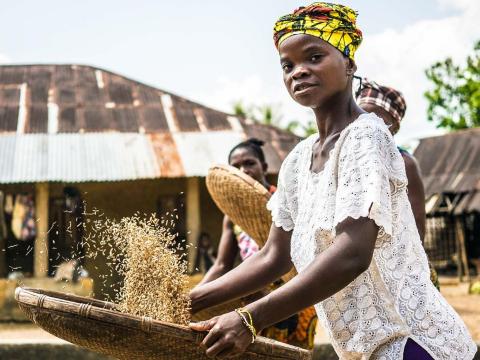The Lancet Countdown on health and climate change: The 2023 report
This is a summary of the following report: Romanello M, di Napoli C, Green C et al (2023)The 2023 report of the Lancet Countdown on health and climate change: The imperative for a health-centred response in a world facing irreversible harms. The Lancet, 402, 2346–2394 https://doi.org/10.1016/S0140-6736(23)01859-7
The Lancet Countdown's 2023 report, the 8th iteration of the international research collaboration, provides a comprehensive assessment of the evolving impacts of climate change on health and the health opportunities emerging from climate action. Even in the face of the urgent warnings of the previous year, progress in addressing the interconnected challenges of the climate change, energy, cost-of-living, and health crises appears limited.
The report highlights the escalating health toll of climate change, with 2023 witnessing the highest global temperatures in over 100,000 years. Vulnerable populations, such as the elderly and infants, face a doubling of heatwave days compared to 1986–2005. Heat-related deaths among those aged over 65 years have surged by 85% since 1990–2000. Climate change is also disrupting natural and human systems, expanding the global land area affected by extreme drought and increasing the risk of infectious diseases.
Economic losses from extreme weather events have risen by 23%, amounting to $264 billion in 2022 alone. Heat exposure led to potential income losses of $863 billion, disproportionately affecting low- and medium-ranked Human Development Index countries. These multiple and simultaneous risks amplify global health inequities.
The report emphasises the failure to address these challenges, particularly the persisting reliance on fossil fuels, with subsidies totaling $305 billion hindering their phase-out. The Lancet Countdown warns that, without rapid action, the use of fossil fuels will lead to an increasingly inequitable future, jeopardising lives globally.
However, despite the challenges, the report identifies opportunities for a healthy future through the transition to a zero-carbon world. Persistent structural inequities in access to, and the use of, clean energy need to be addressed – particularly in countries with high levels of energy poverty.
The report calls for several interventions, including promoting renewable energy, enabling safe active travel, and advocating for equitable access to healthy, low-carbon diets (which would prevent many of the 12.2 million deaths currently attributed to suboptimal diets globally). The health sector is urged to lead by example, transitioning to sustainable, net-zero emission health systems. Encouraging signs of progress, such as a decline in deaths from fossil-fuel-derived air pollution and growth in the renewable energy sector, offer hope for the potential benefits of health-centered action.
As the world accelerates toward 3°C of heating, the Lancet Countdown underscores the imperative of prioritising health in international climate change negotiations. The report calls for a people-centered transformation, putting health at the heart of climate action. Achieving this vision requires confronting the economic interests of fossil fuel industries, delivering science-driven progress, and ensuring accountability. The report concludes with a call for the leadership, integrity, and commitment of the health community, corporations, policymakers, and financial institutions to realise the promise of health-centered climate action and secure a thriving future for all.


